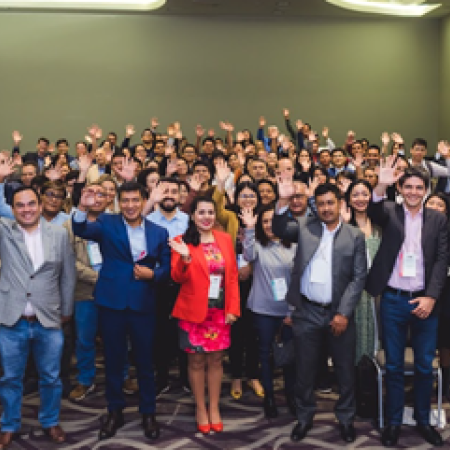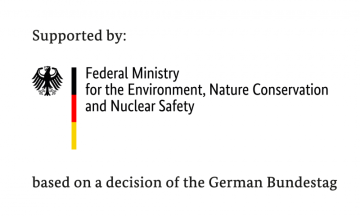
Investissements à impact pour l'utilisation durable de la biodiversité au Pérou (BioInvest)

Le Pérou est l'un des 17 pays les plus diversifiés du monde. Il abrite 70 % des espèces de flore et de faune de la planète et dépend économiquement de ressources naturelles non renouvelables, ce qui a des répercussions sur la richesse de sa biodiversité. Le pays dispose d'un énorme potentiel pour la commercialisation de produits et de services liés à la biodiversité, mais l'un des principaux obstacles auxquels sont confrontées les entreprises respectueuses de la biodiversité est la précarité des conditions permettant de réaliser des investissements durables, en particulier des "investissements d'impact".
Conscient de cette situation, le ministère péruvien de l'environnement (MINAM) insiste sur la nécessité d'améliorer les conditions d'investissement. Le projet "Investissements d'impact pour l'utilisation durable de la biodiversité au Pérou (BioInvest)", mis en œuvre par la Deutsche Gesellschaft für Internationale Zusammenarbeit (GIZ), vise à attribuer une valeur économique à la biodiversité et à transformer le modèle actuel en une économie verte. L'objectif du projet est d'améliorer les conditions pour les investissements d'impact et d'autres formes de financement durable dans les entreprises respectueuses de la biodiversité.
Contexte
Défis à relever
La coordination avec les institutions publiques a constitué un premier obstacle pour l'équipe. Les décisions et les activités de mise en œuvre ont nécessité une étroite collaboration, ce qui a introduit des complexités dans les premières phases du projet.
Les défis environnementaux étaient centrés sur l'identification des entreprises ayant des pratiques durables au Pérou et qui adhèrent aux bonnes pratiques. L'équipe du projet a identifié plus de 1 300 entreprises de ce type, ce qui a nécessité un processus de qualification approfondi. En outre, l'engagement du secteur privé, y compris les banques et les acteurs de la microfinance, s'est révélé être un troisième défi en matière de politique environnementale, car ils n'étaient pas habitués à offrir des services à de telles entreprises.
Les défis sociaux comprenaient la mesure de la stabilité de l'engagement du secteur public, influencé par les mouvements politiques et les changements au sein des ministères qui signifiaient souvent que les négociations devaient être recommencées, ce qui avait un impact sur la continuité du projet. Dans le secteur privé, le principal défi consistait à concilier les incitations axées sur le profit avec la nature moins lucrative des entreprises ciblées.
Emplacement
Traiter
Résumé du processus
Les facteurs clés de succès des éléments constitutifs du projet sont interconnectés pour créer une approche holistique et durable visant à maximiser l'impact des entreprises ayant de bonnes pratiques. Les partenariats de collaboration entre les investisseurs d'impact, les secteurs publics et les institutions de microfinance servent de fil conducteur pour relier les éléments constitutifs. Cela crée un effet de synergie, encourageant les pratiques durables et soutenant les entreprises respectueuses de la biodiversité au Pérou.
Blocs de construction
Combler le fossé entre les entreprises et les investisseurs
BioInvest travaille avec le programme de préparation à l'investissement pour combler le fossé entre les entreprises et les investisseurs d'impact. Ce programme forme les entreprises à l'aide de trois modules de formation sur les techniques et outils clés permettant de présenter les entreprises de manière attrayante aux investisseurs. BioInvest organise également des événements de mise en relation entre les entreprises et les investisseurs.
Facteurs favorables
Des partenariats de collaboration avec des investisseurs d'impact, des informations complètes sur les options de financement et un processus de mise en relation efficace sont les clés de la réussite de cet élément constitutif.
Leçon apprise
Il est important d'identifier un langage commun lorsqu'on parle d'entreprises respectueuses de la biodiversité. Reconnaître la diversité dans des termes tels que "microentreprise", "petite entreprise" ou "moyenne entreprise", et comprendre des facteurs tels que les matières premières et les chaînes de valeur peut améliorer la communication et aligner les objectifs. Il est essentiel de comprendre les différents niveaux d'entreprises, qu'il s'agisse de micro-entreprises, d'acteurs établis sur le marché ou de start-ups.
Optimisation de l'instrument de financement public
Pour optimiser l'instrument de financement public, BioInvest travaille avec des entités du secteur public telles que le ministère du Développement agricole et de l'Irrigation (MIDAGRI) et le ministère de l'Environnement (MINAM) afin d'intégrer des critères de durabilité dans leurs instruments de financement. Il s'agit d'optimiser les programmes existants pour soutenir les entreprises respectueuses de la biodiversité.
Facteurs favorables
Une coopération étroite avec le secteur public, une compréhension claire des critères de durabilité et une communication efficace sont essentielles.
Leçon apprise
Il est essentiel de communiquer clairement les objectifs des instruments de financement. S'assurer que les entreprises et le gouvernement comprennent les objectifs et les résultats escomptés des programmes permet de jeter les bases d'une collaboration fructueuse. Cette transparence contribue à instaurer la confiance et à favoriser un environnement propice au développement d'entreprises respectueuses de la biodiversité.
Instruments financiers verts avec les institutions de microfinance
BioInvest a développé des méthodologies durables pour créer des instruments financiers verts et mesurer leur impact sur l'environnement en collaboration avec des institutions de microfinance.
Facteurs favorables
Les partenariats de collaboration avec les institutions de microfinance, la personnalisation des instruments financiers verts et le contrôle continu de l'efficacité sont des facteurs favorables.
Leçon apprise
L'élaboration de méthodologies personnalisées en collaboration avec les secteurs public et privé est cruciale. Ces cadres jouent un rôle important en répondant aux besoins spécifiques du secteur et en promouvant des pratiques durables.
Impacts
Impact sur le secteur public :
- Une collaboration entre le MINAM et le ministère de l'économie et des finances (MEF) a abouti à la première feuille de route de la finance verte en Amérique latine, établissant des lignes d'action pour mobiliser des ressources pour les investissements verts.
- Le MINAM et le ministère du développement agricole et de l'irrigation (MIDAGRI) encouragent conjointement l'adaptation d'une loi visant à créer une incitation spéciale pour les modèles d'entreprise respectueux de la biodiversité.
- Le programme de promotion de l'internationalisation a permis de catalyser environ 8,3 millions d'euros pour les entreprises ayant des modèles d'entreprise respectueux de la biodiversité. Il s'agit du premier instrument de financement public à intégrer des critères de conservation de la biodiversité.
Impact sur le secteur privé :
- Quatre entreprises respectueuses de la biodiversité ont obtenu un financement de 1,5 million d'euros à la suite d'un événement de mise en relation.
- Le premier événement de mise en relation a eu lieu en 2022 et a permis à 32 entreprises de rencontrer des investisseurs d'impact. La deuxième édition du programme de préparation à l'investissement a facilité les interactions entre 38 entreprises et 14 investisseurs d'impact.
- MINAM a conseillé deux institutions financières sur le développement de quatre lignes de crédit pour les usines de biodigesteurs et les produits agricoles domestiques, avec un potentiel pour catalyser jusqu'à 78 millions d'euros pour les entreprises avec des modèles d'affaires respectueux de la biodiversité.
- Une collaboration entre MINAM et deux universités péruviennes a permis à plus de 40 professeurs de participer à un programme de formation sur le financement de la biodiversité.
Bénéficiaires
D'ici 2023, 70 entreprises respectueuses de la biodiversité auront participé avec succès au programme de préparation à l'investissement. Quatre entreprises ont obtenu un financement de 1,25 million d'euros et 14 modèles d'entreprise certifiés ont bénéficié de 280 000 euros de ressources non remboursables.
Objectifs de développement durable
Histoire

En août 2023, le MINAM a accueilli un événement de mise en relation intitulé "Impact Investment as a Financing Mechanism for Bio-Businesses", marquant la deuxième année consécutive de cette initiative à fort impact. Soutenu par l'Initiative internationale pour le climat (IKI), l'événement a servi de plateforme clé pour mettre en relation 38 entreprises respectueuses de la biodiversité avec 14 investisseurs d'impact, dans le but de mobiliser des financements privés pour un impact social et environnemental positif.
Les entreprises participantes venaient de 13 régions du pays, et le panel d'investisseurs d'impact comprenait des institutions renommées telles que Amazonia Impact Ventures, Alterfin, Bamboo Capital Partners, Beneficial Returns and Global Partnership, Root Capital, et d'autres.
L'événement a également permis de mettre en lumière les réussites de deux entreprises respectueuses de la biodiversité qui ont obtenu un financement dans le cadre du cycle d'investissement 2022. L'un de ces exemples est La Campiña Peru, une entreprise de Junin qui a bénéficié du fonds Amazonia Impact Ventures. La Campiña Peru produit et exporte du gingembre, du curcuma, du cacao et du yacon biologiques.
Une autre réussite est celle de la Cooperativa Laguna de lo Cóndores de Amazonas, qui a bénéficié de deux fonds d'investissement d'impact (Alterfin et NESsT). L'organisation se concentre sur la production et la commercialisation de produits traçables et de qualité sûre, et travaille actuellement en étroite collaboration avec 800 familles de producteurs de café. Elle crée des modèles de commerce direct avec des torréfacteurs en Europe ou aux États-Unis.
Les fondateurs des deux entreprises ont commenté leurs expériences réussies et ont fourni des recommandations pour guider d'autres personnes dans leur recherche d'investissement d'impact.







